- Dr AG Jeetoo Hospital (Civil)
Port Louis, Mauritius - Mon - Sat 8.00 - 18.00.
Sunday CLOSED
Gastroscopy
A gastroscopy involves a thin, flexible tube called a gastroscope gently inserted into your stomach. It's about 10mm thick and one meter long, and we make sure it's thoroughly sterilized after each use. Before the procedure, you'll need to fast for around 10 hours if it's rescheduled.
During the quick 5-minute procedure, you'll usually receive a local anesthetic at the back of your throat to minimize any discomfort. If necessary, we may also provide a sedative but this is usually reserved when the test is expected to be complicated. You'll lie on your left side and bite down on a mouth-guard as the gastroscope is gently passed over your tongue and into your stomach.
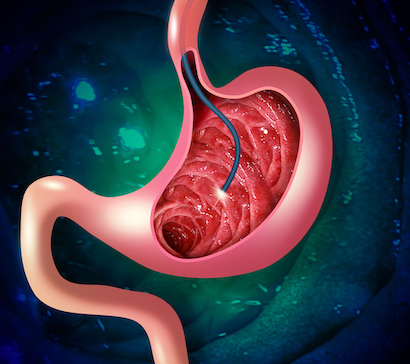
It's normal to feel slightly nauseated or have a belching sensation during the procedure. Afterward, you'll wait in the waiting room for further instructions and can usually eat and drink within 20 to 30 minutes. We recommend having someone accompany you for support. If you have any questions or concerns, feel free to ask – we're here to help!
Colonoscopy
A colonoscopy involves inserting a tube into your colon through your anus. This tube, called a colonoscope, is a bit thicker and longer than a gastroscope. Before the procedure, you'll need to take a colonic purgative to ensure your colon is thoroughly cleansed for a clear examination. Your medical team will provide detailed instructions on how to prepare.
During the approximately 15-minute procedure, you'll receive a sedative and painkiller to keep you comfortable. You'll lie on your left side as the tube is gently inserted. It's normal to feel some discomfort, but your nurse will be there to support you throughout.
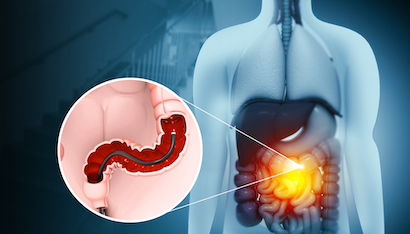
We aim to examine your entire large bowel, and sometimes part of the small bowel, to ensure a thorough evaluation. If any polyps are found, they can be removed during the procedure.
Afterward, you'll rest for about 15 minutes before receiving discharge instructions from your nurse. It's important to have someone accompany you for support during the procedure. If you have any questions or concerns, don't hesitate to ask – we're here to help!
ERCP
ERCP, or Endoscopic Retrograde Cholangio-Pancreatography, is a procedure to examine the bile and pancreatic ducts. It's typically reserved for treating jaundice caused by bile duct stones or other blockages. The specialized endoscope used is side-viewing and slightly thicker than usual, allowing for a thorough examination.
During ERCP, both endoscopic images and X-ray visualization (fluoroscopy) are used. At our hospital, ERCP is performed in the Operating Theatre for optimal care. If scheduled for ERCP, you'll need to be admitted the day before. During the procedure, you'll lie on your tummy with a mouth-guard for about 30 minutes. Our goal is to alleviate jaundice, sometimes requiring the placement of a stent.
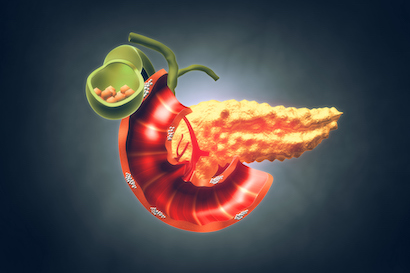
Afterward, you'll need to stay in the hospital for at least a day for observation. Your comfort and well-being are our priority, so if you have any concerns, feel free to discuss them with us.
Urea Breath Test (UBT)
The Urea Breath Test (UBT) is a simple way to detect a bacterium called Helicobacter pylori (H. pylori) in your stomach. This sneaky bacterium can cause tummy pain, ulcers, and, in rare cases, stomach cancer. UBT is non-invasive, meaning it doesn't involve any needles or incisions.
If you're scheduled for a UBT, you'll need to fast for at least 4 hours and avoid antacids or proton pump inhibitors for 2 weeks beforehand. During the test, you'll swallow a harmless tablet containing a special carbon radioisotope. If H. pylori is present, it will break down the carbon in the tablet, which we'll detect in your breath.
Sampling your breath takes just 15 minutes, and results are ready within 5 minutes. We use UBT to diagnose H. pylori in patients with stomach issues and to confirm clearance after antibiotic treatment. Plus, you don't need anyone to accompany you for this test. If you have any questions, feel free to ask!
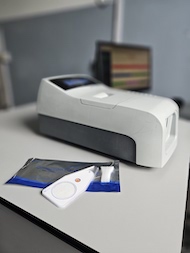
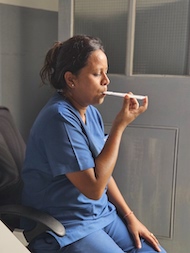
Capsule Endoscopy
Capsule Endoscopy is a special procedure used to examine the small bowel, which is about 8 meters long and hard to reach with regular endoscopes. This procedure is available exclusively at our unit in Mauritius.
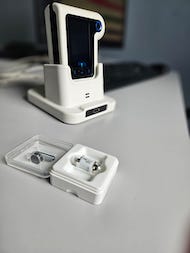
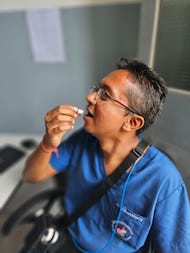
If you're scheduled for a capsule endoscopy, you'll need to prepare by taking a colonic purgative and arriving early at the Endoscopy unit. Once there, you'll swallow a small capsule and be connected to the necessary equipment. The capsule immediately starts taking pictures as it travels through your digestive system, sending them to a recording device.
You'll need to fast for the first 2 hours, then you can drink water and have a light sandwich after 4 hours. The entire test usually takes around 6 hours. Your doctor will review the images, and you'll receive your results at your next appointment. Afterward, you can simply flush the capsule down the toilet. If you have any questions, feel free to ask!

